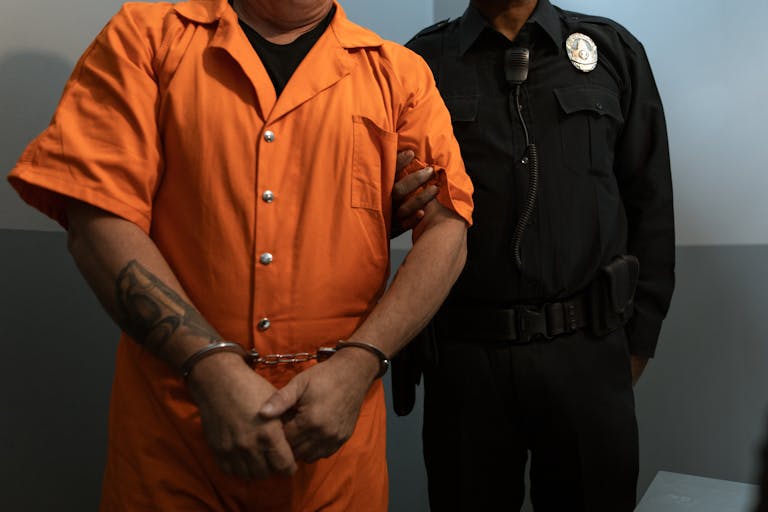How Much Does a Lawyer Cost for Criminal Defense in 2025?
Discover the average costs of criminal defense lawyers in 2025, factors affecting fees, and how to find affordable legal representation. Get informed to protect your rights!
Introduction: The Critical Need for Criminal Defense Representation
When you’re facing criminal charges, the stakes couldn’t be higher. Your freedom, future, and reputation hang in the balance. But here’s the kicker – navigating the legal system alone is like trying to perform surgery on yourself. You need a skilled criminal defense lawyer in your corner, but the burning question is: how much will it cost?
Let’s dive into some eye-opening statistics that highlight the importance of legal representation:
- Did you know that defendants with private attorneys are 25% more likely to get charges dropped or reduced compared to those with public defenders?
- A shocking 94% of state-level criminal cases end in plea bargains – often because defendants lack proper legal counsel.
- The average sentence for defendants with private attorneys is 3 years shorter than those with court-appointed lawyers.
- Here’s a stunner: wrongful convictions have cost taxpayers over $4 billion since 1989!
These numbers paint a clear picture – investing in a good criminal defense lawyer can make or break your case. But I get it, you’re worried about the cost. Let’s break it down and see what you can expect to pay for quality legal defense in 2024.
How Much Does a Lawyer Cost for Criminal Defense?
The cost of a criminal defense lawyer can vary widely, typically ranging from $1,500 to $15,000 or more, depending on the complexity of your case and the attorney’s experience. For misdemeanors, you might pay between $1,500 and $3,500, while felony cases can cost anywhere from $5,000 to $15,000+. High-profile or complex cases involving serious felonies can easily exceed $50,000 or even reach six figures.
Let’s break this down further:
Factors Affecting Criminal Defense Lawyer Costs
- Case complexity: The more intricate your case, the higher the cost. Complex cases require more time, research, and resources. For instance, a case involving multiple charges or sophisticated legal arguments will likely cost more than a straightforward, single-charge case.
- Attorney’s experience and reputation: Seasoned lawyers with a track record of success typically charge more. Their expertise and reputation can be invaluable, potentially leading to better outcomes. However, this doesn’t mean less experienced attorneys can’t provide excellent representation at a lower cost.
- Location (urban vs. rural areas): Legal fees often reflect the cost of living in an area. Attorneys in major cities like New York or Los Angeles generally charge more than those in smaller towns or rural areas. This is due to higher overhead costs and increased demand for legal services in urban centers.
- Type of criminal charges: Felonies usually cost more to defend than misdemeanors due to their severity and potential consequences. For example, defending a murder charge will likely be significantly more expensive than a petty theft case.
- Time required for the case: The longer a case takes, the more it’s likely to cost. Some cases can be resolved quickly through plea bargaining, while others may require months of preparation and multiple court appearances. Each hour spent on your case adds to the overall cost.
- Need for expert witnesses or investigators: If your case requires testimony from expert witnesses (like forensic specialists or psychologists) or extensive investigative work, these additional services will increase the total cost. Expert witnesses, in particular, can be quite expensive but may be crucial for building a strong defense.
Types of Fee Structures
- Hourly rates: This is a common billing method where you pay for the actual time the lawyer spends on your case. Rates typically range from $150 to $700 per hour, depending on the attorney’s experience and location. Be sure to ask how time is tracked and billed (e.g., in 6-minute or 15-minute increments).
- Flat fees: Some attorneys offer a set price for handling certain types of cases from start to finish. This is more common for straightforward cases like first-time DUIs or simple misdemeanors. Flat fees can provide peace of mind as you know the total cost upfront, but make sure you understand what’s included and what might incur additional charges.
- Retainer fees: This involves paying an upfront sum to secure the lawyer’s services. The retainer is typically placed in a special account, and the lawyer bills against this amount as work is completed. If the retainer is depleted, you may need to replenish it. Retainers are often used in combination with hourly billing for more complex or unpredictable cases.
- Sliding scale fees: Some attorneys offer fees based on your income level. This can make legal representation more accessible to those with limited financial means. While less common, it’s worth asking about if you’re concerned about affordability.
- Contingency fees: Although rare in criminal cases, some attorneys might consider a partial contingency arrangement for certain aspects of a case, such as asset forfeiture proceedings. In these situations, the lawyer’s fee is tied to the outcome of the case.
- Mixed fee arrangements: Some lawyers may use a combination of these structures. For example, they might charge a flat fee for pretrial work and an hourly rate if the case goes to trial. This can help balance predictability with fair compensation for unexpected developments in your case.
Remember, regardless of the fee structure, it’s crucial to get all fee agreements in writing and to thoroughly understand what’s covered before proceeding. Don’t hesitate to ask questions about billing practices – a good attorney will be transparent about their fees and willing to explain their billing structure in detail.
Average Costs by Case Type
Here’s a table to give you a clearer picture:
| Case Type | Average Cost Range |
| Misdemeanor | $1,500 – $3,500 |
| DUI/DWI | $2,500 – $5,000 |
| Felony | $5,000 – $15,000+ |
| White Collar Crime | $10,000 – $100,000+ |
| Federal Crime | $15,000 – $150,000+ |
Remember, these are just averages. Your actual costs may vary based on the specific circumstances of your case.
Real-Life Scenarios: Understanding the Cost in Context
Let’s look at some examples to help you understand how these costs might apply in real situations:
- The First-Time DUI: John, a 28-year-old accountant, was pulled over and charged with a DUI. It’s his first offense. He hires a local attorney with experience in DUI cases. The lawyer charges a flat fee of $3,500, which covers all court appearances and negotiations with the prosecutor.
- The Drug Possession Case: Sarah, a college student, is caught with a small amount of marijuana. She’s facing a misdemeanor charge. Her attorney charges an hourly rate of $200, with the total cost coming to around $2,500 for about 12-15 hours of work.
- The Assault Charge: Mike is accused of assault after a bar fight. It’s a felony charge. His attorney estimates the case will take about 60-80 hours and charges $300 per hour. The total cost ends up being around $21,000, including the costs for an expert witness.
- The White-Collar Fraud Case: Emma, a business executive, is charged with fraud. It’s a complex federal case. Her high-profile attorney charges $500 per hour. The case takes several months and requires extensive preparation. The final bill comes to $175,000.
These scenarios illustrate how costs can vary dramatically based on the nature and complexity of the case.
Frequently Asked Questions
- Q: Can I get a free consultation with a criminal defense lawyer? A: Many lawyers offer free initial consultations. Use this opportunity to discuss your case and get a fee estimate.
- Q: What if I can’t afford a private attorney? A: If you can’t afford an attorney, you may qualify for a court-appointed lawyer or public defender at no cost.
- Q: Are there any hidden costs I should be aware of? A: Ask about additional expenses like court fees, expert witness costs, or investigation fees. These can add to your total bill.
- Q: Is it worth paying for a private attorney instead of using a public defender? A: While public defenders are often skilled, private attorneys can typically dedicate more time and resources to your case, which can lead to better outcomes.
- Q: Can I negotiate the lawyer’s fee? A: Yes, many attorneys are willing to negotiate their fees or offer payment plans. Don’t be afraid to discuss your financial situation.
Conclusion: Investing in Your Future
When it comes to criminal defense, remember that you’re not just paying for a service – you’re investing in your future. A skilled attorney can mean the difference between a conviction and an acquittal, or between harsh penalties and a more favorable outcome.
While the costs can be significant, the stakes are even higher. That’s why it’s crucial to find the right balance between quality representation and affordability.
Need help finding the right criminal defense lawyer for your case and budget? Our partner LegalShield offers affordable access to a network of experienced attorneys. Click here to learn more about their services and get the legal help you need today!
Remember, your freedom is priceless. Don’t let the fear of legal fees prevent you from getting the best possible defense. With the right lawyer by your side, you can face your charges with confidence and protect your rights every step of the way.







